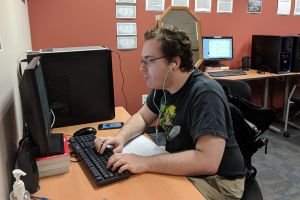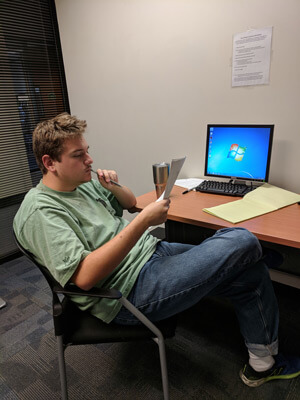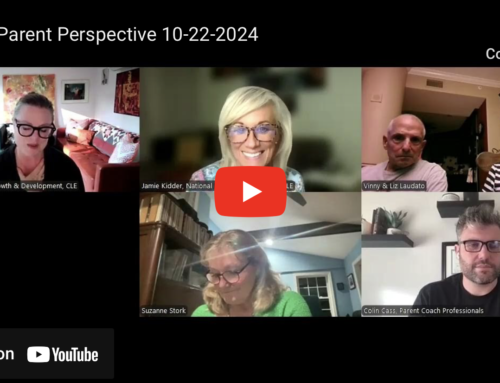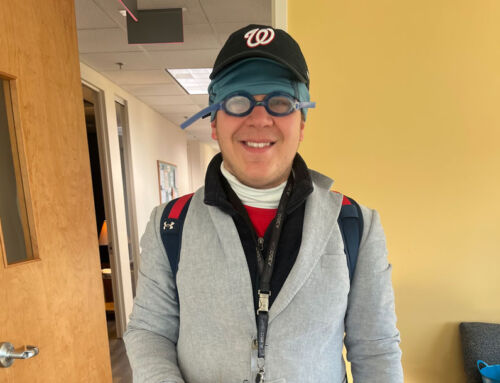By Melissa Hall, Academic Tutor/Career Development Instructor CLE Austin
 At CLE, academic tutors do more than simply teach students how to write an essay or how to solve an algebraic problem. Tutors teach students executive, organizational, and study skills–how to handle multiple responsibilities and how to manage their time. But most of all, tutors help students develop the skills necessary to become independent in an academic learning environment as well as other areas of their lives.
At CLE, academic tutors do more than simply teach students how to write an essay or how to solve an algebraic problem. Tutors teach students executive, organizational, and study skills–how to handle multiple responsibilities and how to manage their time. But most of all, tutors help students develop the skills necessary to become independent in an academic learning environment as well as other areas of their lives.
Positive Education focuses on teaching students core classes like English, math, and science, but also character qualities like perseverance and determination. Academic tutors, like myself, practice Positive Education by teaching students how to be their best selves.
 This semester, one of my students took an online class that consisted solely of homework–no tests, no quizzes. Sounded easy at first, until he received a 54% on his first module and then a 40% on his second. This class was going to be much more difficult than we imagined.
This semester, one of my students took an online class that consisted solely of homework–no tests, no quizzes. Sounded easy at first, until he received a 54% on his first module and then a 40% on his second. This class was going to be much more difficult than we imagined.
Understandably, my student panicked. There were 14 modules and he had done poorly on the first two.
What were the rest of the modules going to look like?
While my student wanted to drop the class, I urged him to stay enrolled. There were many more weeks left, and now that he understood the amount of time and effort required of him, he could modify how he completed the homework. We could make changes to our sessions in order to better serve his needs for the class, and if, in a few weeks, it wasn’t working he could still drop the class.
The thing I reminded him most of all was that he could do this work. If he put his mind to it, if he persevered, he could do well on the rest of the modules and pass the class.
While he wasn’t completely convinced, he said that he would try and I commended him on this first step. We made adjustments to our sessions each week, and I encouraged him throughout the semester to keep pushing. Don’t give up.
The third module grade came back as a 94%. And then the fourth module was an 88%. And then a 98%. My student isn’t one for celebrating, but each week I pointed out what a remarkable job he had done, how he had turned a negative start to the semester into something positive. I reminded him that he had completed the work and was getting the good grades in return. It was working.
He’ll likely pass the class with a B+.
Positive Education works for all students, even those already independently motivated.
 Another student of mine has an excellent sense of time management and perseverance–she’s a student I rarely worry will forget an assignment or not put in her best effort. Regardless, we went through her course schedule every week and she informed me of when she would be completing assignments. As her good grades kept coming in I commended her on her independence and ability to work on her own. I reminded her that her grades are a direct reflection of the hard work she’s put into the class. She should be proud of herself.
Another student of mine has an excellent sense of time management and perseverance–she’s a student I rarely worry will forget an assignment or not put in her best effort. Regardless, we went through her course schedule every week and she informed me of when she would be completing assignments. As her good grades kept coming in I commended her on her independence and ability to work on her own. I reminded her that her grades are a direct reflection of the hard work she’s put into the class. She should be proud of herself.
Learning new skills and material can be a difficult task for any college student. As educators, we owe it to our students to be a positive force in their lives. By incorporating Positive Education into our sessions, we instill in our students the qualities necessary to exceed in all areas of their lives and make the road to independence a little easier.







